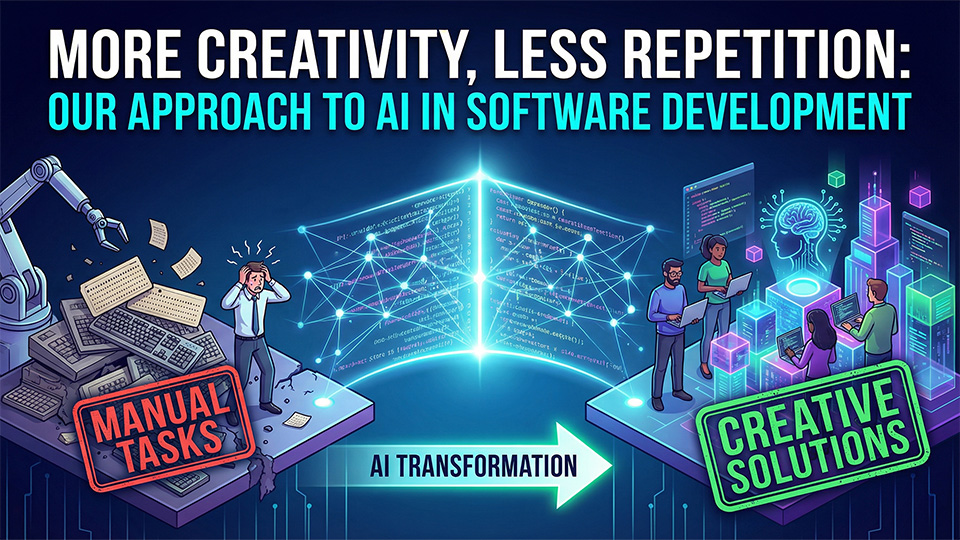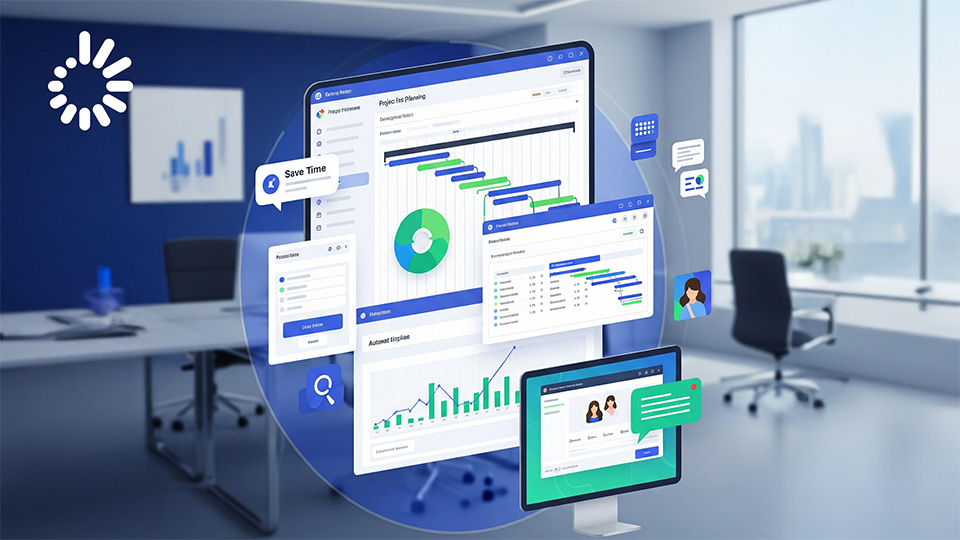June 30, 2023
Automation: Transforming the IT and Software Development Industry
Although the concept of automation is not new, it has been gaining momentum in recent years, to such an extent that it will revolutionize the way we work. A study shows that nearly 97% of organizations believe that business process automation is crucial for digital transformation. And they're right! As far as the IT and software development industries are concerned, they have been and continue to be transformed by automation. This article explores the concept of automation, its significance, and how it is reshaping the IT and software development sector.
Understanding Automation
Automation refers to the use of technology and systems to perform tasks or processes with minimal human intervention. It involves the utilization of software, algorithms, and robotic systems to automate repetitive and mundane tasks, enabling organizations to improve efficency, accuracy, and productivity while reducing costs.
Automation can be categorized into two main types: physical automation and software automation. Physical automation involves the use of robots or machines to replace manual labor, while software automation focuses on automating digital processes and workflows. Thus, automation is an important process in the digital transformation of companies and organizations.
Transforming the IT and Software Development Industry
The IT and software development industry is experiencing a profound transformation due to automation. Traditional software development processes that relied heavily on manual effort and human intervention are being streamlined and optimized through automation technologies. Here are some key areas where automation is making a significant impact:
- Continuous Integration and Deployment: Automation tools enable developers to automate the building, testing, and deployment of software applications. Continuous Integration/Continuous Deployment (CI/CD) pipelines have become the norm, ensuring faster and more reliable software releases.
- Testing and Quality Assurance: Automation has revolutionized the testing and quality assurance processes. Automated testing frameworks and tools allow developers to conduct comprehensive tests, identify bugs and errors, and ensure software quality without extensive manual effort.
- Infrastructure Provisioning and Management: With the rise of cloud computing and Infrastructure as Code (IaC), automation has become essential for provisioning and managing IT infrastructure. Tools like Docker and Kubernetes automate the deployment and management of software containers, ensuring scalability, flexibility, and efficient resource utilization.
- Monitoring and Performance Optimization: Automation tools enable proactive monitoring and alerting, ensuring that IT systems and software applications are running smoothly. Automated performance optimization techniques, such as auto-scaling and load balancing, help maintain optimal system performance even under varying workloads.
Benefits of Automation in the IT and Software Development Industry
The adoption of automation in the IT and software development industry brings forth numerous benefits for organizations:
- Enhanced Efficiency and Productivity: By automating repetitive and time-consuming tasks, developers can focus on more complex and value-added activities. Automation eliminates human error and accelerates development cycles, leading to increased productivity and faster time-to-market.
- Cost Savings: Automation reduces the need for manual labor, resulting in significant cost savings for organizations. With fewer human resources required for repetitive tasks, businesses can allocate their workforce to more strategic initiatives.
- Improved Software Quality: Automated testing and quality assurance processes ensure thorough and consistent testing, minimizing the occurrence of bugs and enhancing software quality. This leads to greater customer satisfaction and loyalty.
- Scalability and Flexibility: Automation enables organizations to scale their infrastructure and software applications seamlessly. By automating provisioning and management processes, businesses can respond quickly to changing demands and allocate resources efficiently.
Challenges and Considerations
While automation offers immense benefits, there are challenges and considerations that organizations must address:
- Workforce Adaptation: Automation may disrupt existing job roles, requiring upskilling and reskilling of the workforce. Organizations should invest in training programs to enable employees to transition to new roles that leverage automation.
- Security and Privacy: As automation involves increased reliance on software and algorithms, organizations must prioritize data security and privacy. Robust security measures and protocols should be in place to safeguard sensitive information.
- Continuous Learning and Maintenance: Automation technologies are evolving rapidly. Organizations must invest in continuous learning and staying updated to leverage the latest automation tools and practices.
Conclusion
Automation is revolutionizing the IT and software development industry, enabling organizations to optimize processes, enhance productivity, and deliver high-quality software solutions. Embracing automation technologies and practices empowers businesses to stay competitive, adapt to changing market dynamics, and unlock new growth opportunities. By leveraging automation, the IT and software development industry is poised for a future of increased efficiency, innovation, and success.
Unleash the power of automation and ignite your company's digital transformation! Contact Dirox to leverage our team of skilled professionals who will guide you from the earliest stage through a seamless digital transformation journey.

Sources:





























.svg)













